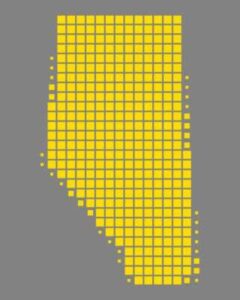Whether it’s called a move-out date, possession date, closing date, or completion date, they all refer to the big day regarding your sale. It’s the day that the seller gets their sale price, and the buyer gets their new home.
Choosing your possession date is traditionally negotiated between the buyer and seller. Often the possession date is used as leverage against the selling price because the seller and buyer are trying to serve their different agenda. For example, the buyer may have a lease they need to honor and want to delay the possession date to avoid paying a mortgage and rent for the same month. The seller may be relying on the proceeds from their sale to purchase their next home, which may cause them to be less flexible on the possession date or may ask for more money if they are forced to wait extra days or weeks to complete a sale. These are just a few complexities that often exist in almost all real estate transactions.
With Sweetly, you have the unique opportunity to choose your own moving date and make your process simple. The freedom to choose your own possession date can also be used as a position of advantage.
A Traditional Sale – Choosing the best moving date
- What Dates are Available? – When choosing a moving date, you will often be bound by the terms of your contract. Traditional real estate doesn’t always allow you to choose the move date that is right for you as you have to agree to the terms of the home seller while also waiting for your current home to sell. These rarely happen on the same day without planning and concessions from both parties.
- School Start Dates – If you have school-aged children, then you are likely working around a school schedule. This means that summer, scheduled breaks, and holiday long weekends are likely the best time for you to move. You will also want to consider and avoid the potential psychological factors of moving in the middle of the academic year. Unfortunately, a side effect of summer being the best time to move is that movers and other ancillary services are usually quite busy during this time. It can be more convenient to move during peak season, but also more expensive.
- Availability of Friends & Family – If you have flexibility with your move-in date it might be best to poll your friends and family to make sure that they don’t have any previously planned events (Make sure Uncle Doug with the F-150 is available).
- Work Schedule – If you have a specific job start date, busy season, or unused vacation days you should keep them in mind. Beyond the time it takes to move, you’ll want to take some extra time to settle into your new home.
- Rental Agreement – If you are a renter, make sure to check your lease agreement, there will be a date that your lease will end, and you are required to leave. Make sure to read the fine print on your lease agreement as each one is different; typically you are required to give 30 days notice to your landlord if you are on a month-to-month contract.
- Weather – Depending on where you live, extreme heat or cold weather could affect how pleasant your move is.
- Plan Ahead – The more you plan, the easier your upcoming move will be.
- You may need to arrange temporary housing if your move date doesn’t align with your home sale date.
- Be financially prepared to carry two mortgages. If the home you are in fails to sell before the date of your new home possession, then you may need to pay for both mortgages until your old property sells.
How to choose a move out date with Sweetly:

- Find your next home before selling to Sweetly. You can use the proceeds from the sale of the home you have to purchase your future home. This way, you can choose a possession date that lines up with your purchase for a trouble-free moving process.
- Avoid double mortgage payments and double moves. There is no need to stress about carrying two mortgages. Your funds are available when you need them.
- Choose a day that’s convenient for your family, close friends, mover availability, and work schedule. With Sweetly, the moving process is easy!
- Choosing a day close to the middle of the week and in the middle of the month will make most moving companies available and more affordable.
- Avoid temporary housing. In fact you may want to ‘overlap’ the possession date of your sale with that of your purchase. This way, you’ll have some time to move and do any last-minute cleaning, etc. Owning two homes for a few days doesn’t cost much, and if this is most convenient for you, it makes sense to explore this option.
Moving can be stressful. Sweetly eliminates much stress by allowing sellers to choose the possession date which makes the process easier.
When is the best season to move?
It depends on your personal goals and the variable in your life. Whether it’s a new job, the school calendar, or individual variables, here are the pros and cons of moving in each season.
- Summertime – Summer offers the best moving experience as the weather is more pleasant and school is out. However, the negative aspects of moving in the summer are that you are more likely to pay a premium to a moving company, so make sure to schedule it in advance so you can find a reputable one.
- Winter – Historically winter has offered lower rates for moving companies, but this comes with its own set of potential issues. While moving in the cold is not that bad, you may have to deal with unforeseen weather issues such as snow, ice, and blizzards. A mid-year move for school-aged children will also have its own set of problems.
- Spring/Fall – You can hire movers at a reasonable rate, the kids are just starting/finishing the school year, and the weather should be mild.












